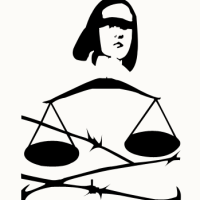A Statement by the Asian Human Rights Commission

(Lanka-e-News -13.May.2019, 11.30PM) Although there was a two day parliamentary debate held to discuss the Easter Sunday carnage caused by the bombs that were exploded in three churches and several tourist hotels, no consensus has yet emerged as to the primary causes that led to the complete breakdown of the security situation and such an abject failure on the part of the state to protect the lives of the people.
If there is to be a solution to such colossal failures, there has to be a consensus in the political establishment, as well as among the people themselves, as to the causes of the failures and the ways to overcome them.
Mere talk about some particular person taking the leadership does not answer any of the more pressing questions. While the Maithripala Sirisena / Ranil Wickramasinghe leadership has pathetically failed to deliver the promises that were made in 2015 to create the requisite constitutional changes and generate other measures to restore the rule of law and order situation in the country, the decisions made by the former government to dismantle apparatus of the democratic state, in favour of one man rule, cannot be disconnected from what has happened in the previous weeks.
A security failure of such magnitude is not just failure of the security apparatus: it is the result of the state as a whole. When Thomas Hobbes wrote his famous “Leviathan” in which he formulated the need for a strong state that can make and uphold rules by which society can be held together, he provided the basis for the only way security could be provided for the people. By a strong state, he did not mean a theory. What Hobbes meant was the fully functioning institutions of the state, held together by strict adherence to the law, and the capacity of the state to sustain such a development.
Humans by their very nature are competitive and unless a well-enforced legal apparatus can control such competition, one person or a single group will try to destroy others and take everything for their sole benefit. This has been the universal experience of humanity throughout its history.
Perhaps no one saw man’s mean nature better than Fyodor Dostoyevsky, who exposed and described people’s capacity to behave much worse than animals if they are not restrained from doing so. What we have seen in the events of Easter Sunday is a behaviour in which no animal would ever engage. It was meanness and cruelty at its worst.
No amount of rhetoric can convincingly deny that this capacity in human nature to be mean and brutish equally applies to Sri Lanka. In fact, the removal of restraining mechanisms has made the situation of Sri Lanka worse than in many other countries. This restraining capacity was removed by the 1978 Constitution, based on what is now described as unitary executive theory. There is no better prescription for ruining a nation than the practice of this theory. In Sri Lanka, this theory has now been in practice for more than forty years. This means that over the past forty years there has been a continuous disintegration of the restraining power of the state to control all forces of violence and unbridled greed.
The complaint of all the people today is that the politicians who play the leading role in both the government and the opposition are themselves mean-natured. Instead of leading the way to restrain the weak side of human nature, these leaders themselves exhibit these dark sides to such a degree that the topic about how to get rid of such leadership is perhaps the major theme being discussed among the people.
However, despite a consensus that the political predicament has gone terribly wrong, the people of Sri Lanka, including those who belong to the most educated sectors of society have not yet truly noticed the abyss into which they have fallen, nor do they have any ideas or ways to get out of this.
What is sadly lacking is the will of the people themselves to re-establish a strong state structure on the basis of the re-establishment of constitutional rules and legal structures by which the state can run its institutions for the benefit of everyone. The heart of the darkness in Sri Lanka is lawlessness. This darkness is so dense that all leaders can no longer see.
When the individuals who are responsible for running the basic mechanisms of the state are themselves so demoralized, no serious change can be expected. This political blindness can only cured by those who will be willing to think seriously about this problem and take upon themselves the task of bringing about the required measures that will guide the people to make a decisive change from the disabled state that Sri Lanka has become since 1978.
The mere mobilizing of military and the police, though necessary at the present moment, is not the final solution. In fact, this could bring about a ridiculous situation. Last week some police stations had only handful of officers to deal with complaints, as most of them were mobilized to assist with security operations elsewhere. In those places, the police officers could not attend to their normal routine duties.
Sri Lanka’s security problem needs to be understood in its full political context. What this means is that we need to look into the historically proven methods of restraining violence in societies. Unless the thought process of people in the country is directed towards discussion and debate on that approach, the present calamity will continue to worsen.
---------------------------
by (2019-05-14 01:22:07)
Leave a Reply